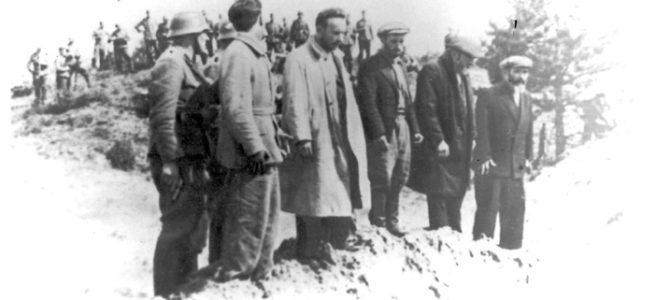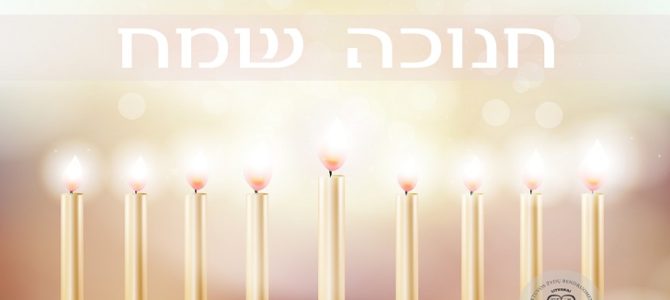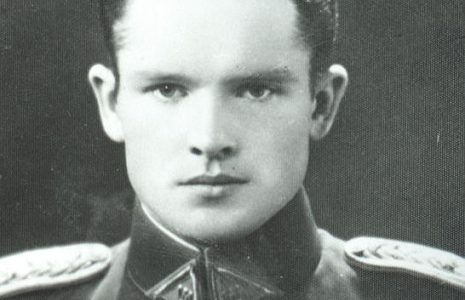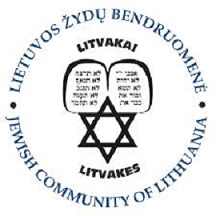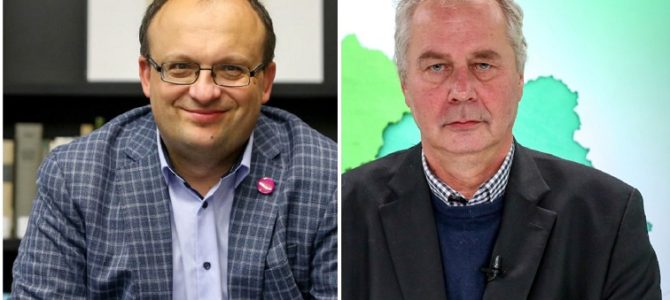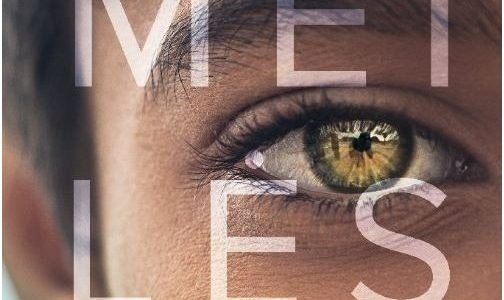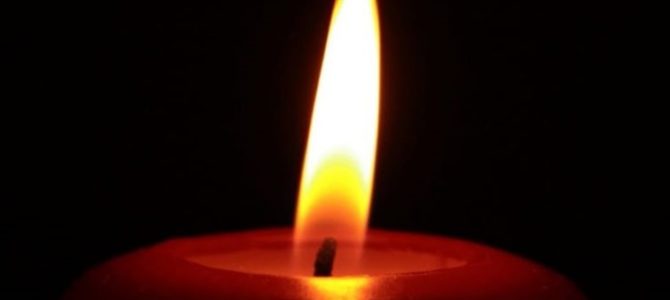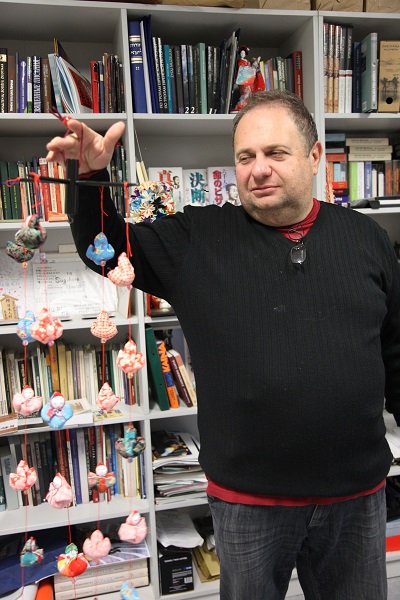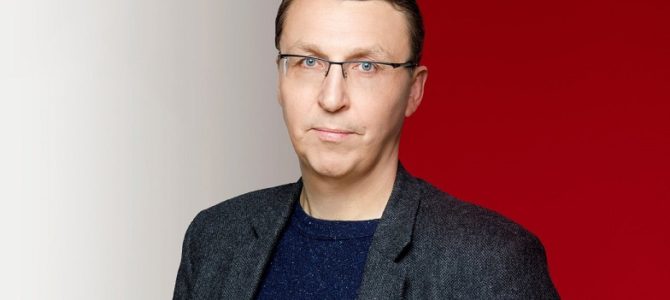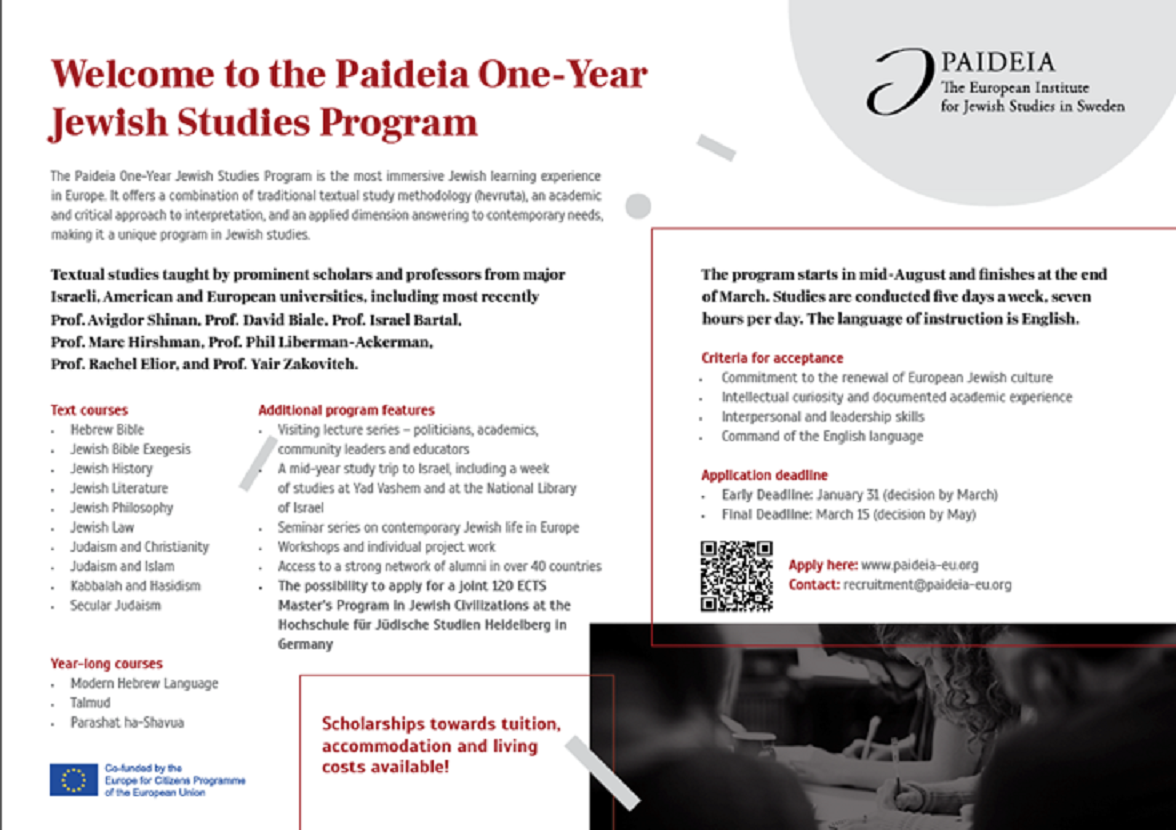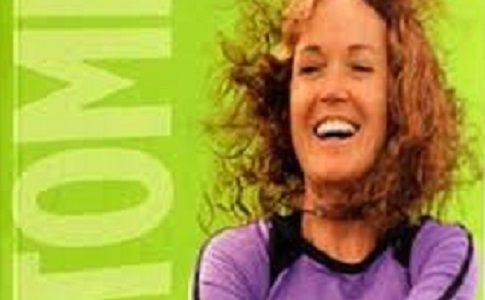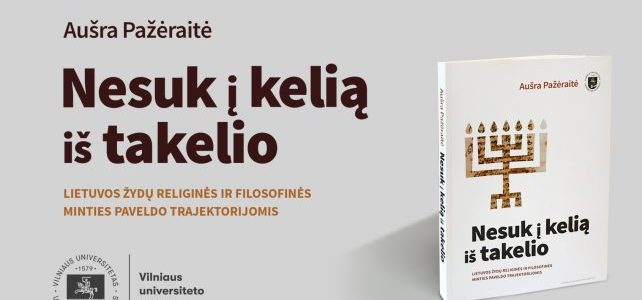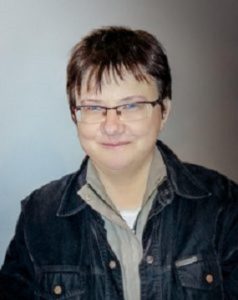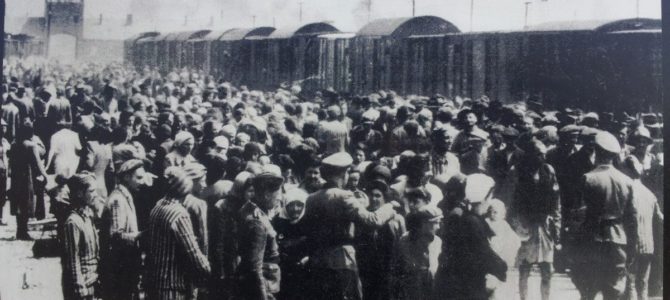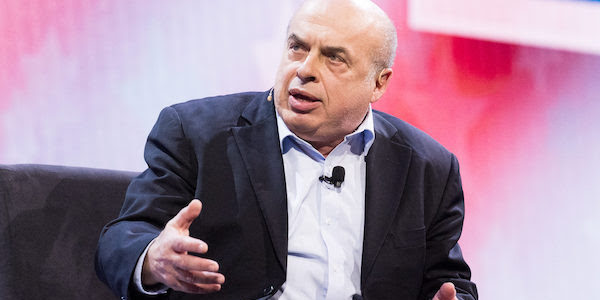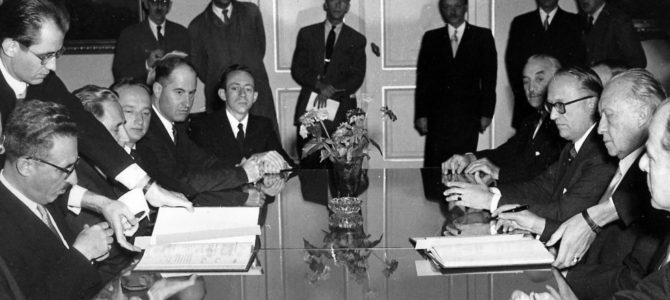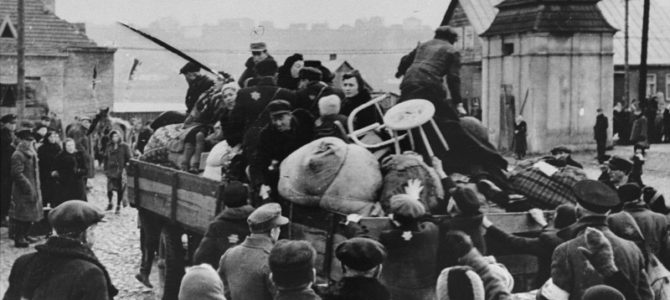Israeli ambassador to Lithuania Yossi Levy is a veteran novelist with some six titles under his belt in the Hebrew book market. His latest, Love Peddlers (a provisional title since no English translation yet exists), was translated to Lithuanian and published by Sofoklis in Vilnius just recently under the title Meilės preikeiviai, roughly, “Merchants of Love,” certainly a more intriguing if not salacious hook for readers than the classic anti-war work Merchants of Death.
To celebrate the publication, a book launch was held at the Lithuanian National Library, moderated by Litvak author and former director of the Vilna Gaon Museum Markas Zingeris. The format was a sort of back-and-forth loose discussion, with Mr. Zingeris posing questions and thoughts, and Mr. Yossi responding. Unfortunately for whatever reason Markas Zingeris’s voice didn’t carry in the room in Lithuanian or English, so the effect was of some random words and phrases, followed by monologues by the Israeli ambassador which might or might not have addressed the question.
Yossi Levy’s side of the discussion was charming, personal, funny and at times spell-binding. He spoke about himself more than his work, which he said was both autobiographical and not autobiographical. He talked about his diplomatic career, which he said was wholly in Europe, and wondered why he chose Europe, since his family has no roots there. He shared the difficulties of being gay in Israel and elsewhere, and talked about his husband and their child. He also said there was a tension in his life between his role as writer and diplomat. As a writer he was able to explore topics which would be strictly taboo in the diplomatic sphere. As an example, he talked about something he wrote about a Jewish homeland in Europe, loosely centered on present-day southeastern Poland, whence Israeli Jews could be evacuated from the tense situation in the Middle East. “I called one city Tel-Lvov,” he said with a smirk.


